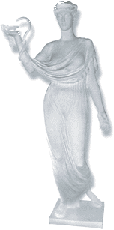

Ministry of Public Health and Social Development of RF
Russian Academy of Medical Sciences
Siberian Branch of Russian Academy of Medical Sciences
Siberian Branch of Russian Academy of Sciences
Medical Polar Fund “Science”
The Northern Forum



|
||

|
International Union for Circumpolar Health Ministry of Public Health and Social Development of RF Russian Academy of Medical Sciences Siberian Branch of Russian Academy of Medical Sciences Siberian Branch of Russian Academy of Sciences Medical Polar Fund “Science” The Northern Forum |
 
|
 |
Plenary session
The Center for Alaska Native Health Research (CANHR) is a community-based participatory research study aimed at understanding current risk factors for obesity and diabetes in Yup’ik Eskimos living in Southwest Alaska. Our multidisciplinary study design includes assessment of genetic, nutritional and behavioral risk factors and their interrelationships with one another in the overall onset of disease. In the development of the CANHR study, we had extensive discussions with community leaders, and their health care providers, to ask for input into the design, conduct, analysis, and interpretation of the research conducted in rural Yup’ik Eskimo communities. A Cultural-Behavioral Core was developed to expand the knowledge base of our center’s research scientists in areas of cross cultural research, as well as to develop sound working relationships with state agencies involved in Alaska Native health, reviewing proposed studies, and developing culturally meaningful presentations to tribal councils. Since our project involved genetics research, we also collaborated with a Native American geneticist in organizing a genetics education workshop in one of our participating communities. This workshop enhanced our understanding of Native American genetics research concerns, and explained genetics research to community leaders and health corporation representatives.
We have enrolled almost 900 participants to date, and remain in regular contact with the communities. We listen to participant concerns and needs while sharing meaningful health information with participants. Our efforts have resulted in participants being active collaborators in the research, and the development of a lasting and trusting research partnership with the community members. Additional communities and regions are being contacted to participate in future research projects.
The CANHR study is funded by a grant from the National Center for Research Resources at the National Institutes of Health (P20 RR16430, to Dr. Gerald Mohatt). The CANHR team would like to express our sincere appreciation to all of our study participants and their communities for welcoming us and teaching us so much about the Yup’ik way of life. Quyana!
Note. Abstracts are published in author's edition
|
Mail to webmaster
Main page |
© 1996-2005, Siberian Branch of Russian Academy of Sciences, Novosibirsk
Last update: 06-Jul-2012 (11:52:05)